No products in the cart.
Commercial Composting: How it Works
What is Commercial Composting?
Collectively, businesses and ordinary citizens can make a major impact on the future of our environment by attempting to reduce our carbon footprint, improve our air quality, and reduce waste in the landfill.
Popular methods used by the zero waste community to reduce waste and preserve natural resources include recycling, going vegan, using solar energy and recycled materials, driving an electric car, shopping secondhand, and composting organic material so it doesn't wind up in the landfill. In this lens, organic waste refers to food waste, yard waste, and even certain compostable plastics.
In this blog, you'll learn more about commercial composting for individuals and businesses and how the composting process can help reduce waste and greenhouse gas emissions in the environment.
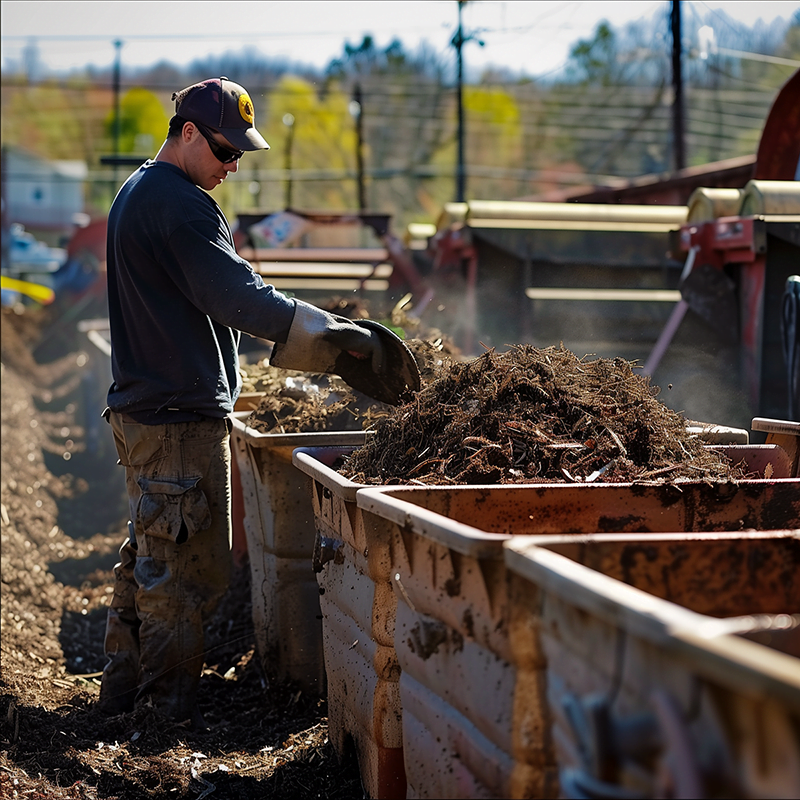
How Commercial Composting Works
Curious about how industrial composting works? Commercial composting, also called industrial composting, is exactly what it sounds like: it's a natural process that uses the same biological processes as at-home composting, except on a much larger, industrial scale, to turn compostable materials and waste like grass clippings, yard waste, shredded newspaper, and food scraps into a nutrient rich compost that's then incorporated into soil.
When it comes to commercial composting, there are four main types used by industrial composters: vermicomposting, windrow composting, pile composting, and vessel composting. We'll discuss each of these compostable options for waste below.
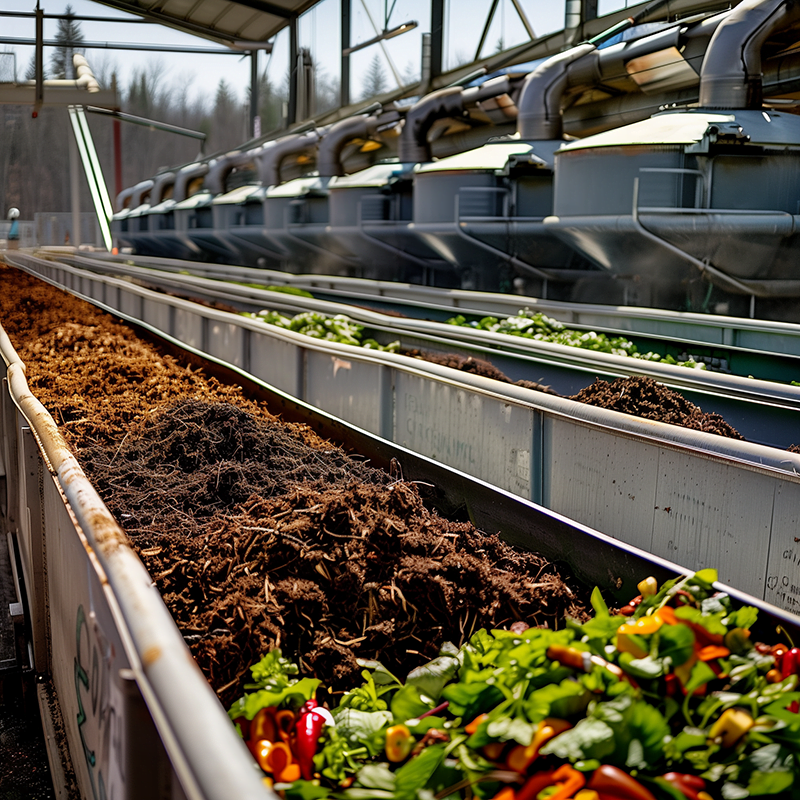
Vermicomposting Food Waste
This composting process most closely resembles home composting except it can be used by businesses: compost bins are filled with compostable materials (like green waste and food waste), and worms are then added into the compost bin. Over time, the worms break down the organic materials into a soil that's rich in nutrients. Though this industrial composting method is relatively quick, it's not easy to manage at scale and is typically used by individuals hoping to reduce their landfill waste.
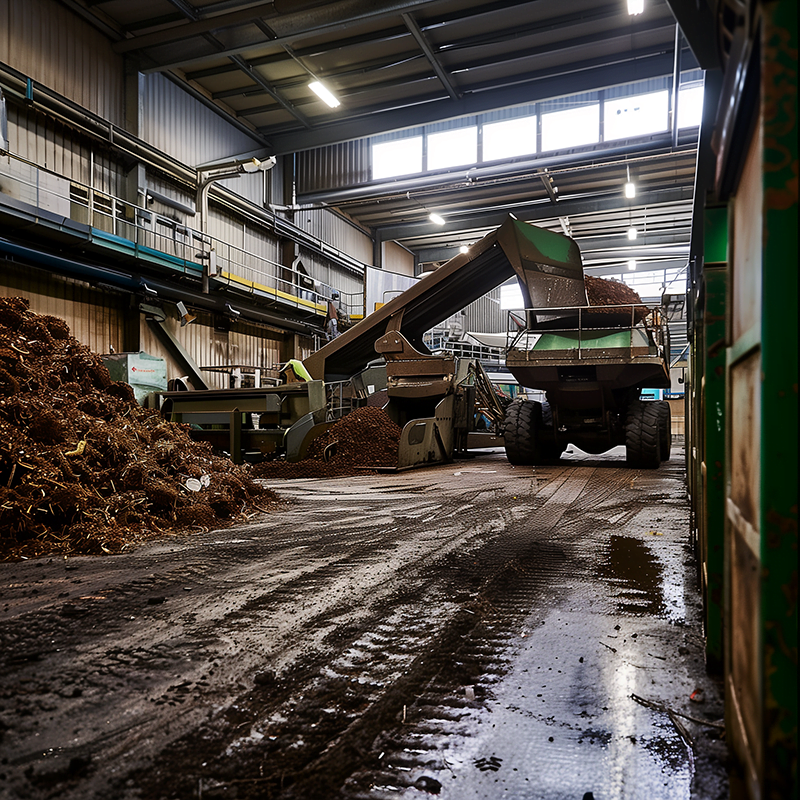
Windrow Composting Yard Waste
Windrow composting is a process that's incredibly popular in high-volume settings. This type of industrial composting collects and arranges organic waste into long rows known as "windrows." Doing so allows biodegradation to occur while air still reaches the core.
This industrial composting method does have some disadvantages: this method of composting requires a lot of space (has minimums for feet high and wide) and must be periodically turned by a machine. If the turned windrow (aka aerated static pile) isn't properly aerated, issues can occur with soil temperature.
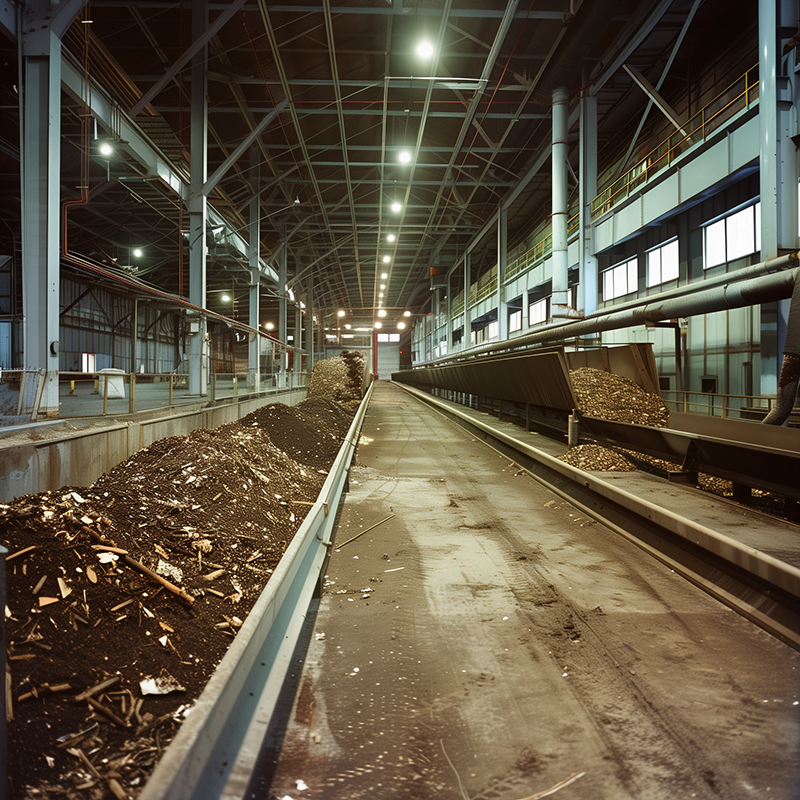
Static Pile Composting
In this industrial composting method, piles of organic materials are mixed with debris like wood chips or paper. The compost pile is then aerated using pipes that pump oxygen to different layers of the compost bin, which maintains the appropriate moisture levels and temperature.
The big drawback to this industrial composting method is that different types of organic materials compost at different speeds, so the companies must sift through and separate yard trimmings from greasy items and motor oil before they are added to the compost pile.
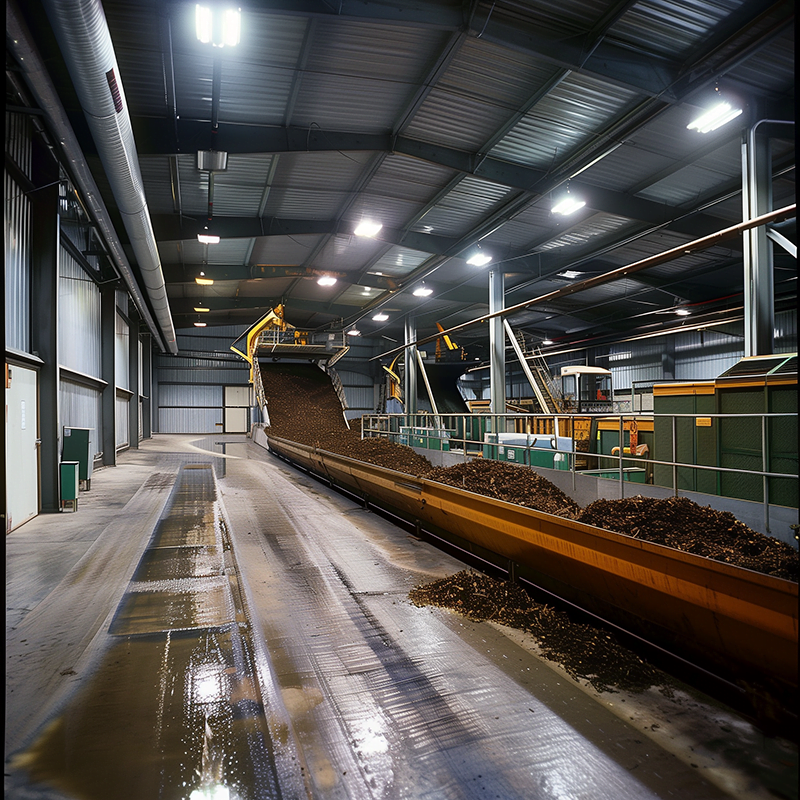
In-Vessel Composting
In-vessel composting is considered to be the most cost-effective way to compost commercially. For this method, composting facilities shred and mix organic waste together, and then palace them into a commercial composting machine. This material is sanitized by high temperatures that kill off harmful bacteria. Once complete, it's left to mature in an enclosed space.
Benefits of Composting Organic Waste
There are many benefits to using a commercial composting facility to compose organic waste. The primary benefit is that it prevents food waste and garden waste from winding up in the landfills, where it will release methane and contribute to global warming.
Think of composting like recycling: instead of recycling a plastic bottle to be given a second life as a different plastic bottle, you're giving your organic waste the chance to become nutrient rich soil in a finished compost pile.
In addition to reducing what's in our landfills, compost piles also minimize the amount of chemical fertilizers used by farms and homeowners. Since composted organic matter becomes nutrient rich soil, using chemical fertilizers is not needed as often.
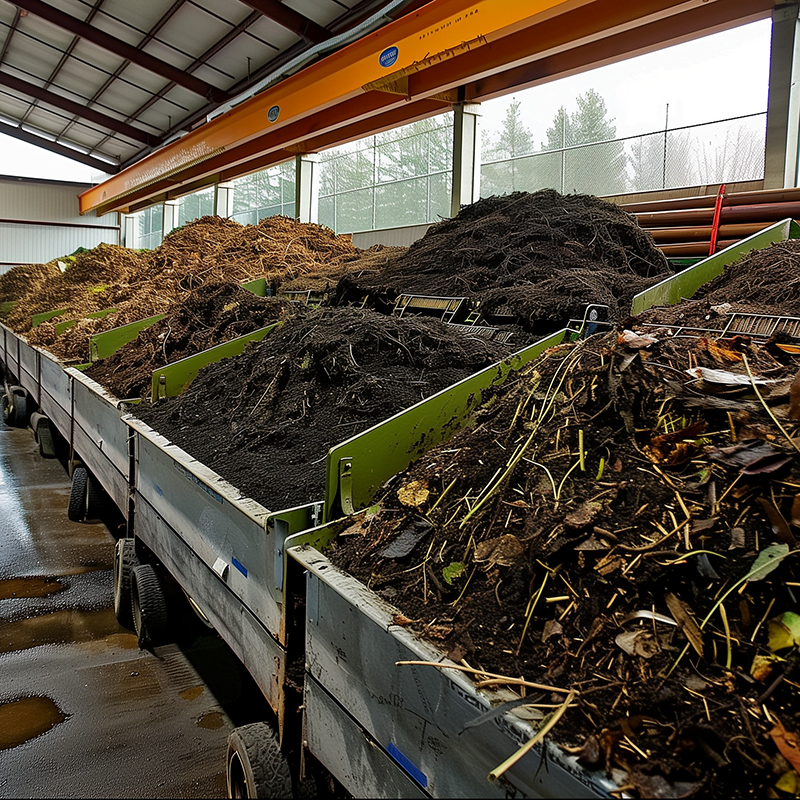
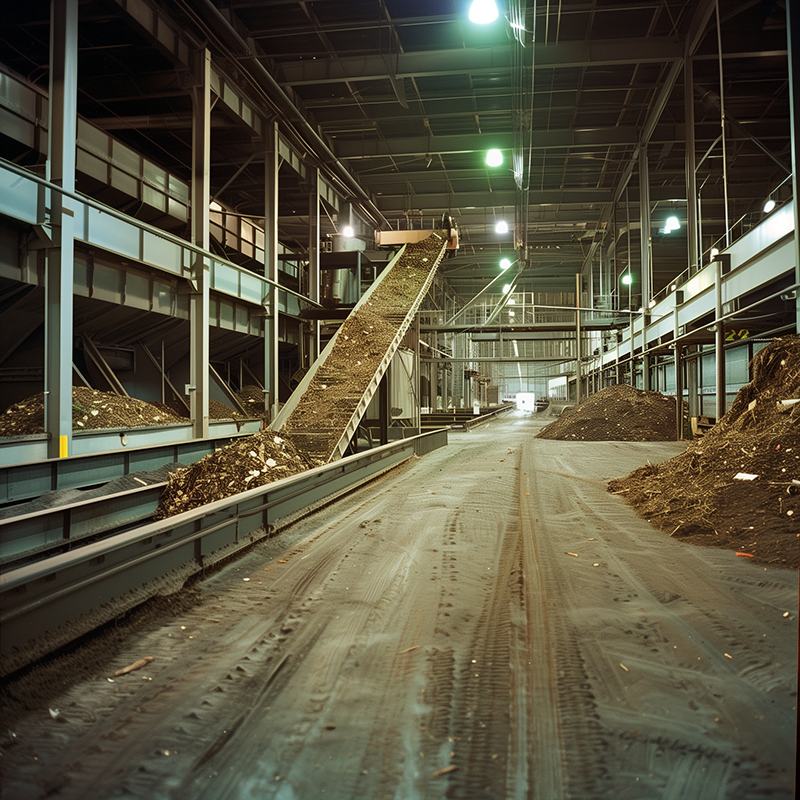
Challenges of Commercial Composting Facilities
Commercial composting facilities do face their own unique set of challenges. First, industrial composting facilities often require a lot of space and must adhere to specific zoning regulations. Next, encouraging individuals to actually recycle their organic matter isn't easy. Finally, in many cases, waste management companies must separate organic matter from each other to ensure the compost quality is at its highest.
Industrial composting can also attract pests and other common contaminant. Additionally, not everyone does it right, which can contribute to more compostable waste in the environment.
Commercial Composting FAQs
What are the different methods of commercial composting?
The different methods that waste management companies use for commercial composting at their facilities are vermicomposting, windrow composting, static pile composting, and in-vessel composting. For more information about which method is used in your area, contact your waste management company for more information. They will also be able to tell you which materials are compostable.
What is the difference between commercial composting and home composting?
The primary difference between commercial composting and home composting is the process, scale, materials, and methodology. Home composting can be done at home, while commercial composting requires special facilities with a broader range of tools and technologies accessible to them. Though the process, in general, is the same, each process is still quite unique.
What does it mean to be commercially compostable?
Only certified compostable products (and food) can be composted at an industrial composting facility. If a product says it can be commercial compostable, that means the materials can be sent to a commercial composting facility for the composting process. Every city has its own guidelines for individuals and businesses interested in composting, so check with your city to learn more.
Regardless of the type or method of commercial composting used, it's certainly a step in the right direction for our environment, as it reduced landfill use and methane production.

